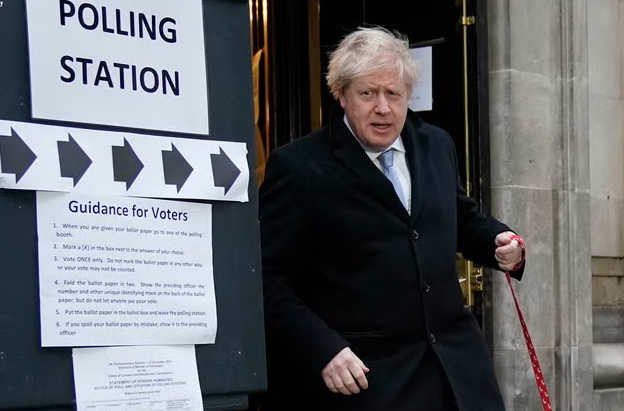Former Prime Minister Boris Johnson faced a setback at a polling station during the local elections in South Oxfordshire when he was reportedly denied entry for failing to provide photographic identification. The incident occurred despite legislation he himself introduced requiring voters to show ID before casting their ballots.
According to Sky News, Johnson, who served as PM for three years until 2022, was unable to vote as polling station staff refused him entry due to his inability to produce any form of ID.
Since the implementation of the Elections Act 2022, voters have been obligated to present photo identification when voting. This legislation was put into effect a year prior.
Across the country, local elections are being held in 107 local authorities, with a total of 2,636 seats up for contention.
While a spokesperson for Johnson did not deny the lack of ID, it was later understood that he managed to obtain identification and successfully cast his vote for the Conservative Party.
In 2021, as Prime Minister, Johnson had emphasized the importance of protecting democracy and electoral integrity, justifying the ID requirement for first-time voters.
Under the current regulations, voters must present various forms of photo identification, including passports, driving licenses, or blue badges. Other accepted forms include biometric residence permits and national identity cards issued by select European countries.
Johnson’s legislation aimed to combat electoral fraud, but incidents like these have sparked debate over the practicality and fairness of the ID requirement.
In a separate incident on the same day, Tory MP Tom Hunt of Ipswich found himself without appropriate ID to vote in the local council elections, prompting him to request assistance from local members as his “emergency proxy.”
Furthermore, a former British army soldier, Adam Diver, expressed disappointment after being turned away from a local polling station because his veteran’s ID was not considered valid identification for voters.



